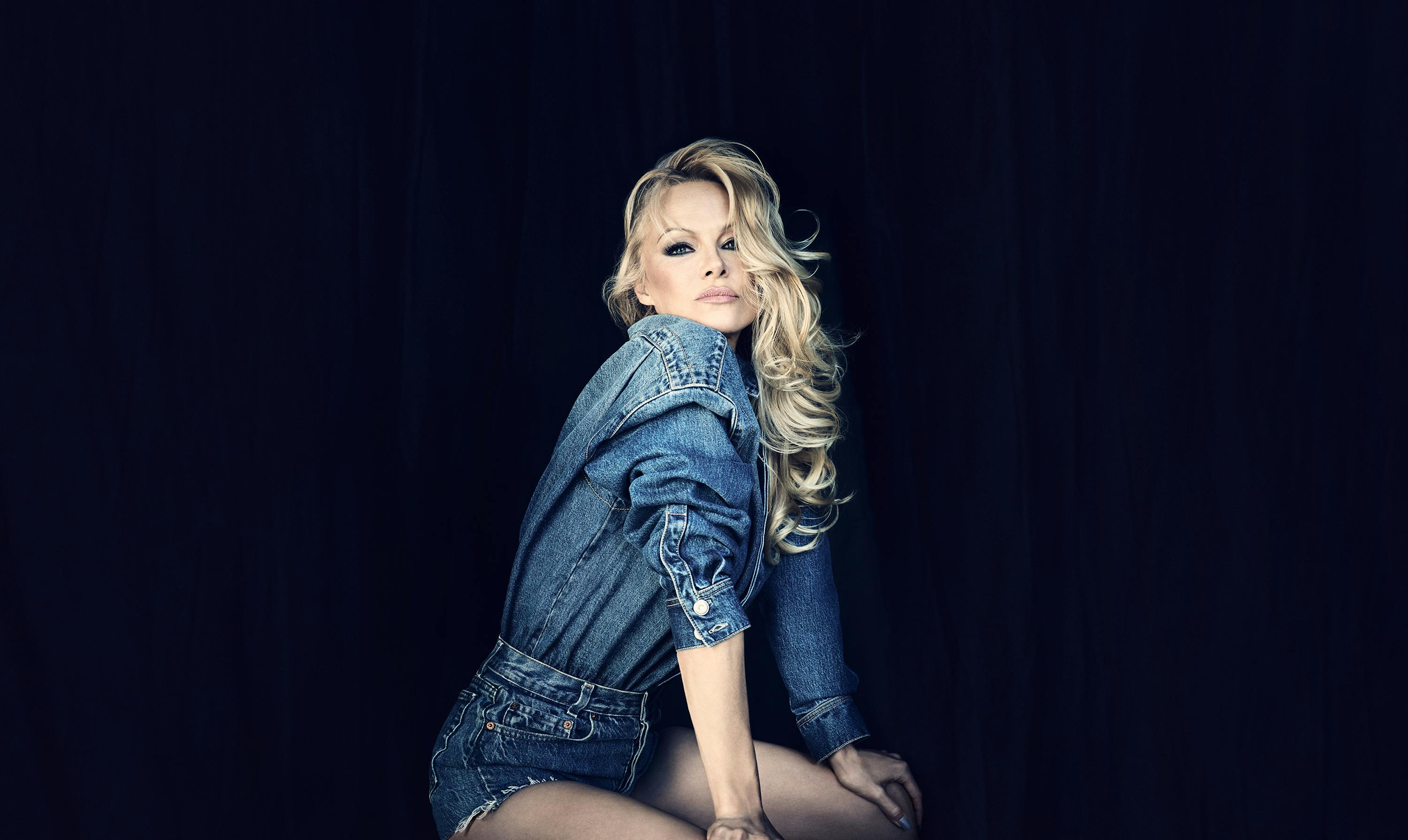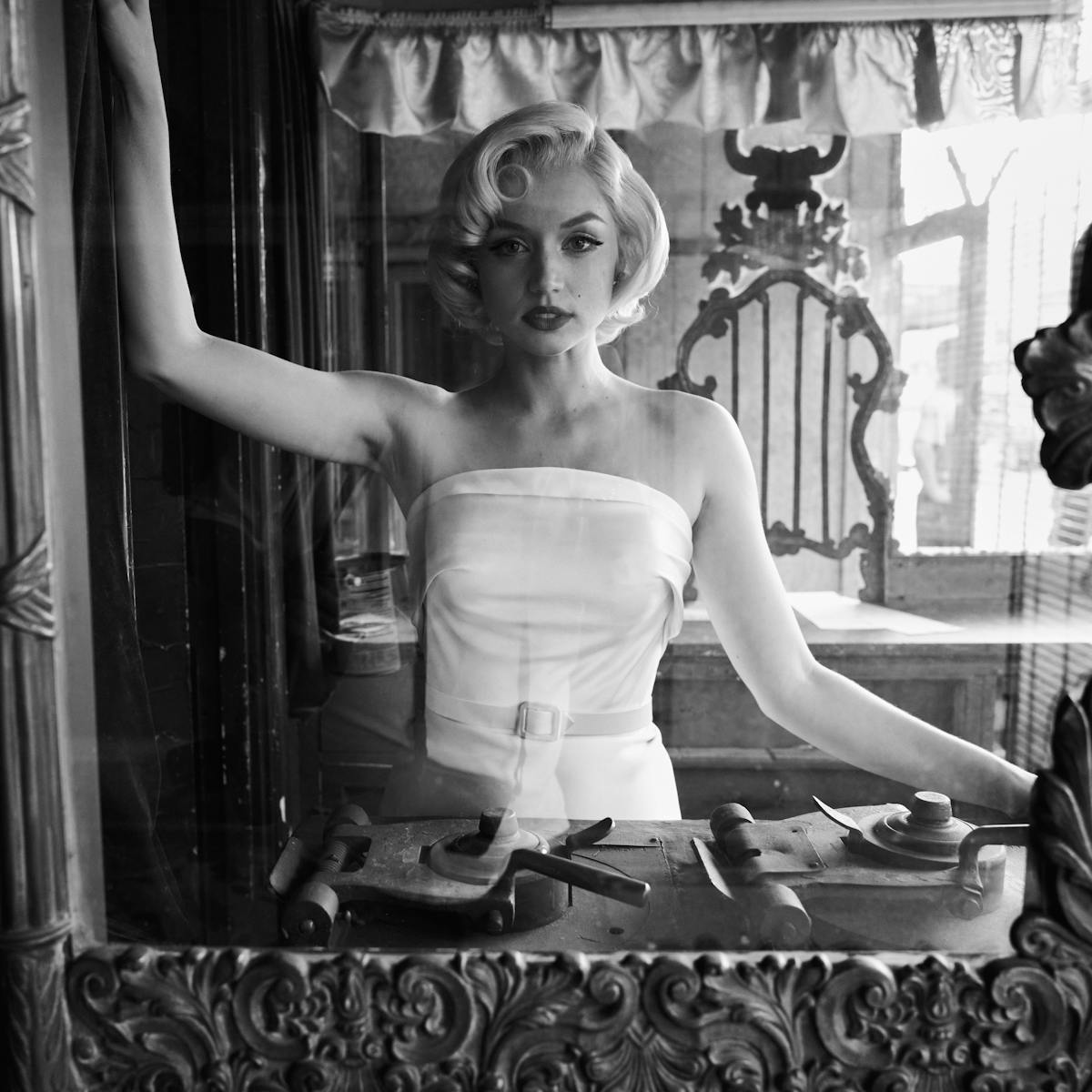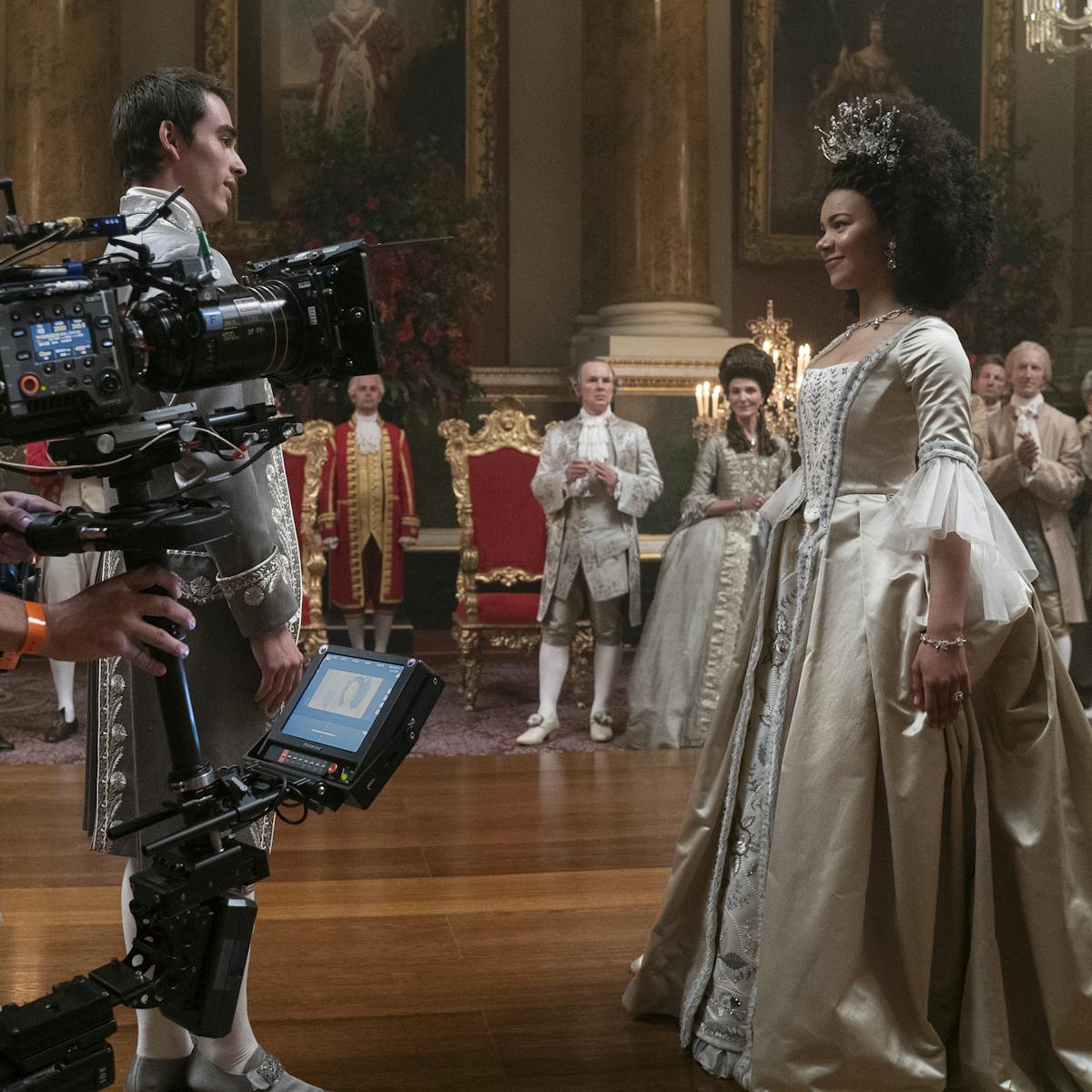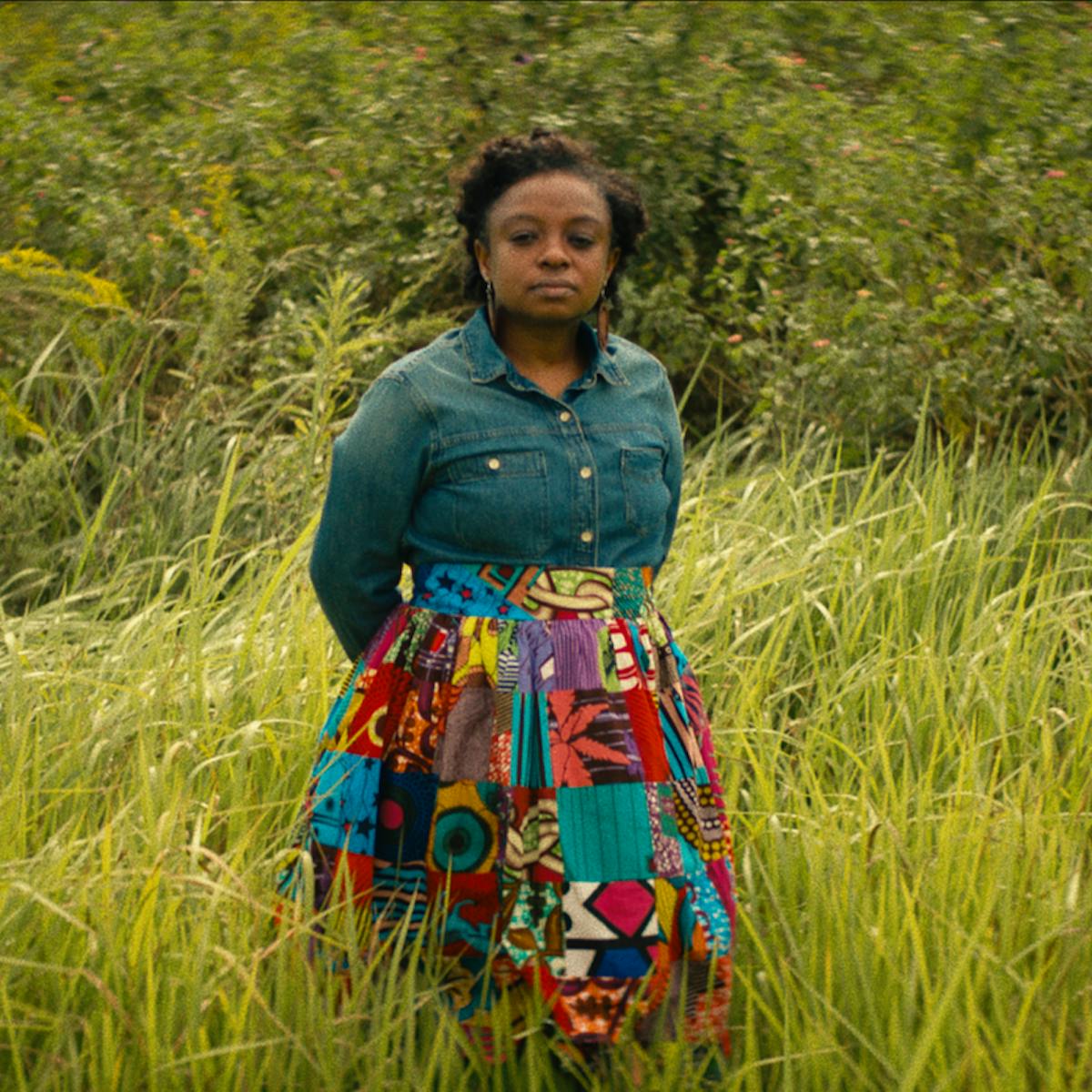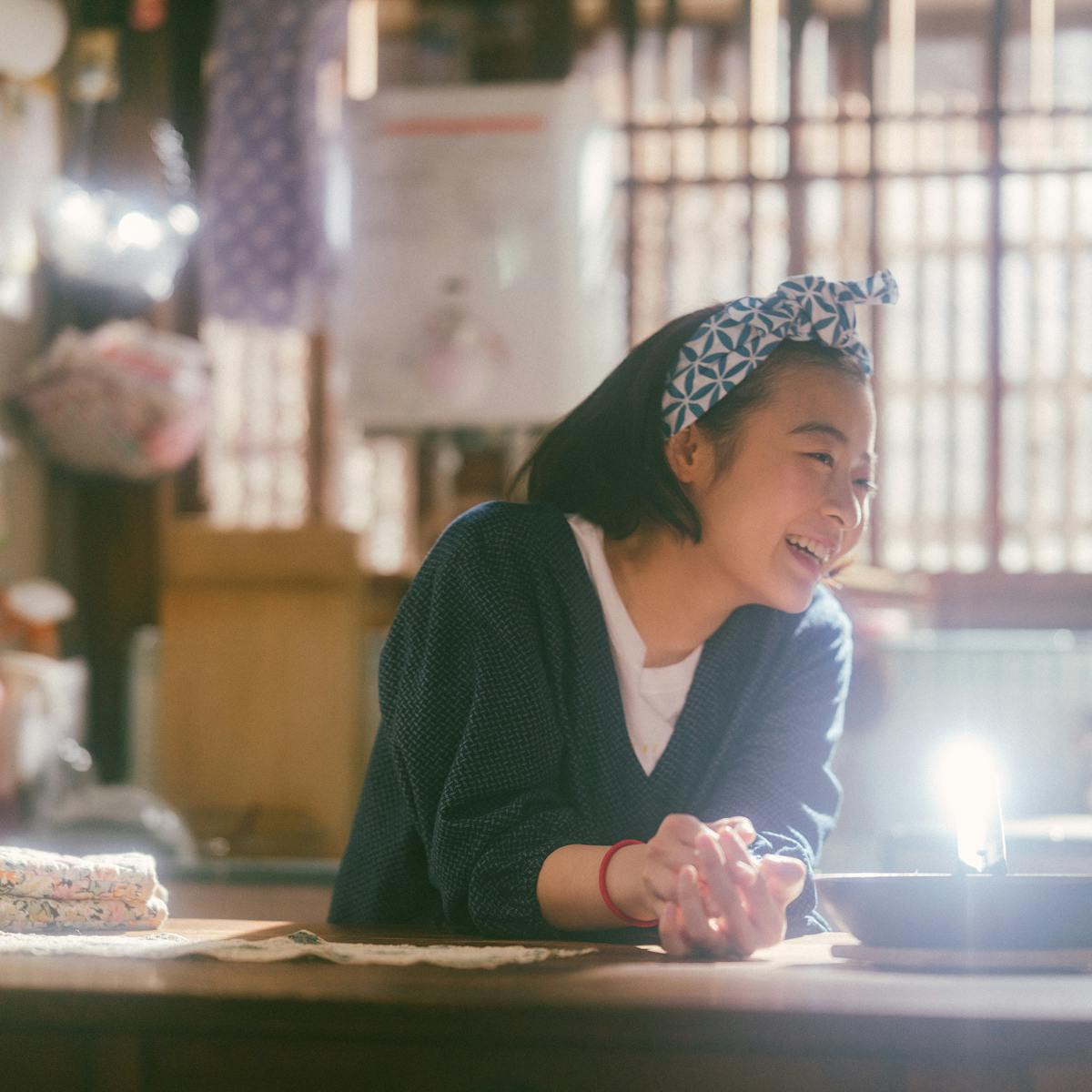Pamela Anderson turns the camera on herself in a candid documentary directed by Ryan White and produced by her son, Brandon Thomas Lee.
You might have noticed a very specific phenomenon happening in pop culture right now — a reevaluation of a particular moment in celebrity, specifically the mid-1990s through the early 2000s. Perhaps Gen Xers and millennials are just now finally old enough to reflect on the blunders of their youth, but numerous films, TV series, and books are examining the way prominent cultural figures from Britney Spears, Janet Jackson, and Monica Lewinsky to Mariah Carey, Whitney Houston, and Paris Hilton were treated, along with our role as the audience in the sensationalism and superficiality of an epochal era. Now, a new feature documentary, Pamela, a love story, is shuffling back through the years to offer a reconstructed look at Pamela Anderson, one finally told through her own words. “I said, ‘Here are the keys to all my archives. Go nuts.’ I know I haven’t killed anybody,” she tells me over Zoom from her home on quiet Vancouver Island, a few candles lit behind her in the soft blue morning light. “It’s so freeing. This is kind of my Hail Mary.”
Admittedly, no one deserves a fresh look more than Anderson. Through her spate of Playboy covers (the most any woman has ever been given) and her role as C.J. Parker on Baywatch (at its peak, the highest-rated TV show in the world), she hit Hollywood at a moment when fame itself was evolving in new, albeit terrifying, ways. She came from very little and reached the height of stardom, only to see her image unravel in the harsh floodlights of scandal when a tape featuring footage of Anderson and then-husband Tommy Lee on their honeymoon was stolen and shared with the world. Since then, she’s navigated the ensuing infamy with grace, cleverly redirecting the notoriety to draw attention to political issues she’s passionate about, like animal rights, and exceeding at every turn the limitations that the media have tried to place on her. “I always thought the easiest thing to be is real,” she says. “I just have my own way.”
On our call, Anderson is charmingly candid, turning on her camera so we can see each other face-to-face even though I had originally been told she’d prefer just audio. She thoughtfully reflects on both the joys and difficulties of living as free, unencumbered, and creative a life as she can, even when the whole world is watching (and judging). “I’m not really great with boundaries; I’ve always felt I wanted to push [them]. And that’s gotten me into a lot of trouble, but it’s also been this crazy art project,” she says. “I’m here. There’s no right or wrong with the image thing. There’s a great E.E. Cummings quote: ‘To be nobody but yourself in a world which is doing its best, night and day, to make you like everybody else means to fight the hardest battle.’”
The doc is a surprising portrait of a delightful, intelligent, resilient, and, above all, multifaceted person, someone who was always more than the cartoon the 90s media hoped to make of her. Directed by Ryan White and produced in tandem with Anderson’s son, Brandon Thomas Lee, the film is told through Anderson’s voice, using home movies as well as her expansive archive of journals that span back to her childhood. The archival footage is layered with confessionals captured at the same beachside home where I spoke to her, in Ladysmith, Canada. Anderson is bare of any eye-catching glam and clad in a plain cotton housedress; the atmosphere reveals an intimate side of a very public figure. “We can paint the picture of our own life,” she says. “If all I have control over is myself, and I get to be the best I can be, and have joy and fun doing it all, what could go wrong?”
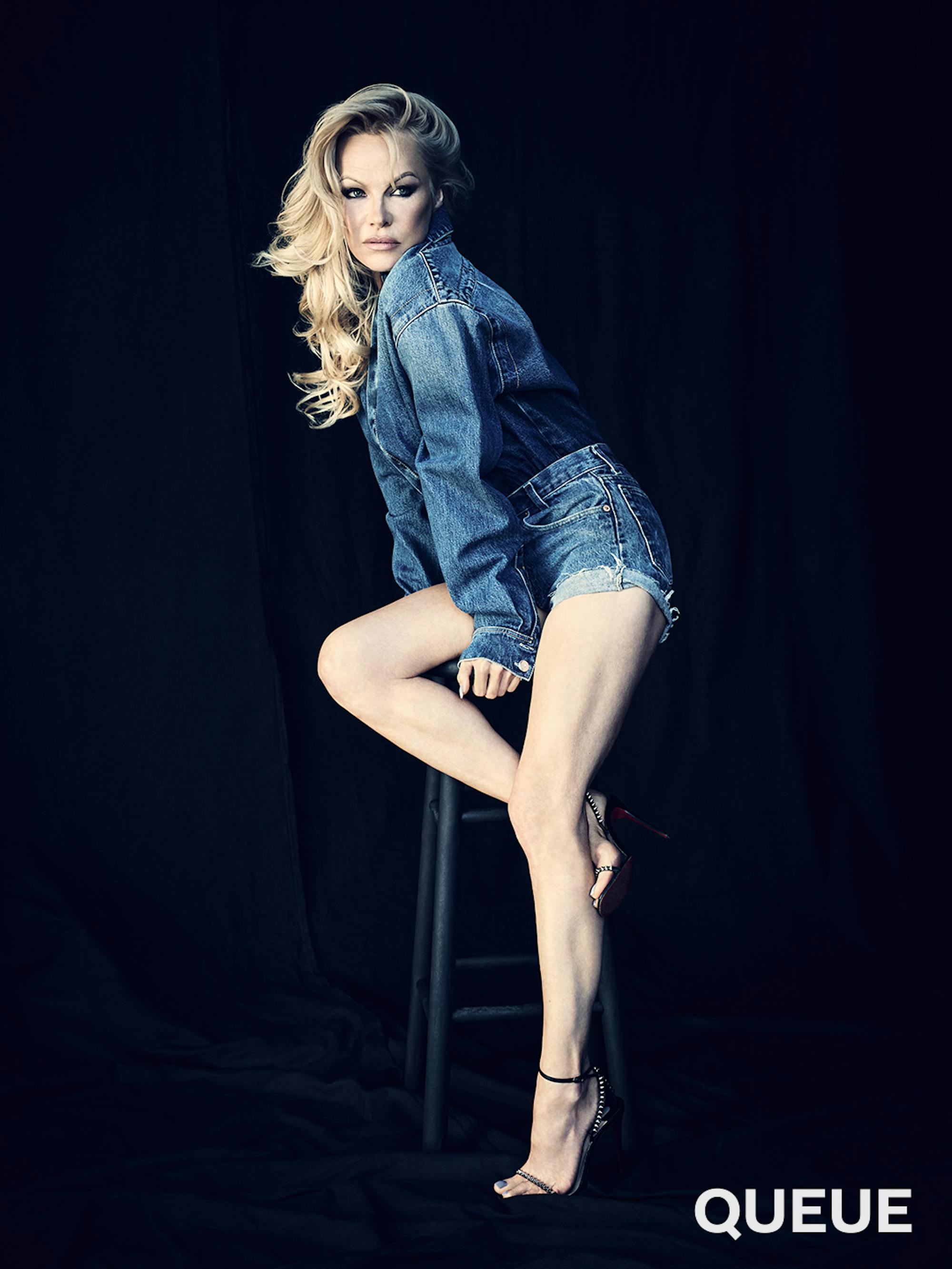
Pamela Anderson
Anderson was born in 1967 and grew up in the tiny Vancouver Island town of Ladysmith, without much money and something of a chaotic family life. Her parents’ marriage was tumultuous. They were young when they wed; her mother worked two jobs to make ends meet and her father was an alcoholic. As a child, she was sexually abused by a female babysitter; at the age of 12, she was raped by a man more than twice her age. These early moments of trauma became touchstones in her life, and Anderson was determined to turn the grist of her early days into fuel for her artistic ambitions. “I decided, since I was little, that I had nothing to lose. If I could survive what I went through, what could be worse?” she says. “I just wanted to live my life in a way that nobody else has ever done. I’ve always lived full disclosure . . . I think a lot of problems that we face are because we have these repressed feelings, that we’ve been taught early on not to air our dirty laundry. I’m a strong person for a reason.”
At 22, Anderson was discovered on the Jumbotron at a football game and got local gigs modeling for sports teams and beer companies. When her early work made it to Playboy’s photo editor, Anderson was invited to Los Angeles to pose for the magazine. Eager yet uninitiated, Anderson had never been on a plane and bungled the customs process at the Canadian airport when she failed to present a work visa. “I just wanted to get across the border,” she recalls. Ever resourceful, Anderson hopped on a bus to Seattle and grabbed a flight to Los Angeles from there. “I had no dreams of anything like [fame]. I was just curious. What could happen? When I was younger, people asked me to be in these pageants and things like that. I would never do it. I just thought it was ridiculous and stupid. So it wasn’t about beauty. It was about being brave. I wanted to see what I’m made of.”
What came next is now legend: global notoriety as a so-called “sex symbol,” a result of Playboy and the iconic red Baywatch bathing suit, but also a highly paparazzied relationship with Tommy, the drummer of heavy metal band Mötley Crüe, with whom she would have two children, Brandon and Dylan Jagger. They were married within four days of meeting in 1995, causing a hurricane of press attention. Then, it all came to a head with the release of the now infamous sex tape they self-recorded while on honeymoon, snatched from a safe in their home. This is when things began to curdle: Though it was stolen property, the clip was feverishly circulated online, so much so that it’s now credited with making the still-niche internet itself more popular. The media piled on with scandalous headlines and lecherous coverage, making Anderson the butt of its jokes; the bigger film opportunities that she hoped would come after the success of Baywatch never materialized. While it’s hard to definitively blame the controversy for the downturn in her career prospects, it certainly didn’t help.
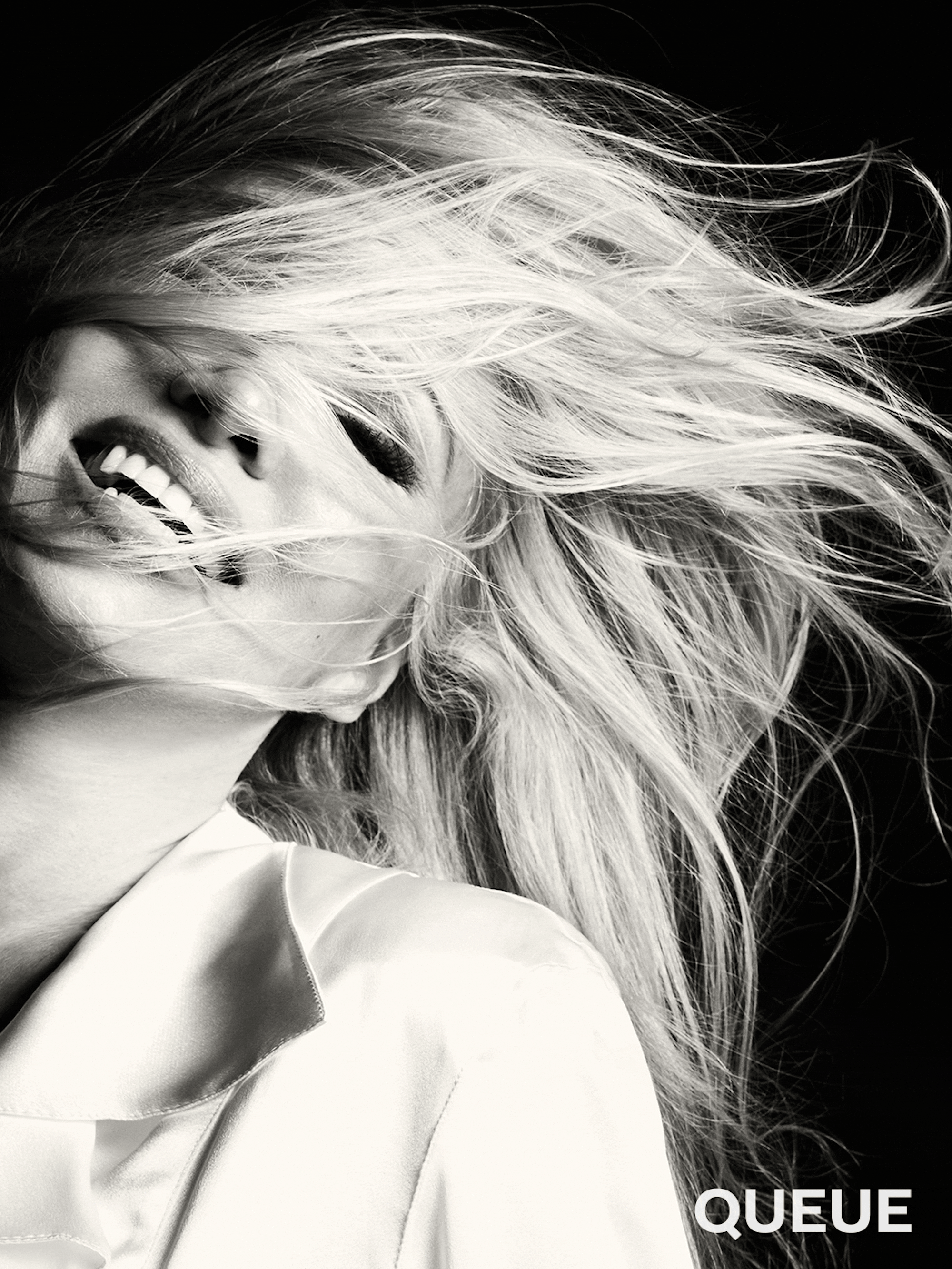
Pamela Anderson
There are a million critical essays that could be written about the effect the fiasco had on pop culture, with the likely tracing of its influence on the rise of the online porn industry all the way to Kim Kardashian’s initial claim to fame. But the documentary focuses on the impact that this invasion of privacy had on Anderson. At the time of the sex tape’s release, many were left with the impression that Pamela and Tommy leaked the tape as a publicity stunt. The documentary unpacks the reality of their position: They were violated, horrified, and not a cent richer from its popularity. Penthouse founder Bob Guccione offered the couple millions for an official release, but Pamela turned down the money on principle. “He offered to buy it from us. He said, ‘I’ll give you five million cash for the rights to this tape,’” she remembers in the doc. “We said, ‘Fuck you, give us our tape back.’ This was not supposed to be for anybody else. We just really had no clue. . . . We didn’t really have the playbook on how to get it all back or make it go away.”
It also contributed to the end of their marriage. She is honest about the issues that impacted the relationship, including some violent moments from Lee that culminated in a jail stint. But in the film she’s also tearful, thinking back on the great romance they had — and how she lost it. “They were happy tears. I really got to experience that level of love. All my life, I’ve loved fairy tales. I’ve read all the books that say it’s unsustainable, you can’t live that way, that’s not real, whatever. But that was so profound for me,” she says. “I am disappointed because I feel like we let our kids down. That’s the part of me that’s sad. But mostly happy tears.”
Do not mistake this doc for a cry for help or even sympathy. As the film’s director remembers, Anderson was uninterested in painting herself as a victim. “The only thing she would ever say about the final film is, ‘Please don’t let it be a sob story. Please let people laugh,’” White says. Anderson is adamant that she doesn’t need saving and resists being thought of as, in her words, a “damsel in distress.” “In the moment, I was just experiencing it all in real time. I wasn’t upset with anybody. I wasn’t thinking, Oh gosh, this is really sexist. That didn’t cross my mind. I thought, I just get to reach people in funny places. I think this is the best job in the world, that I get to be in this position where I really have nothing to live up to, and I can only surprise people,” she says. “I never had that feeling like I needed to be taken seriously. I always had this foundation. I know what my talents are. I know what I’m capable of. I know that there’s a lot of depth to me that maybe not everybody understands, but as long as my kids and all my dear friends understand, then I’m okay with what everyone else thinks.”
I never had that feeling like I needed to be taken seriously. I always had this foundation. I know what my talents are. I know what I’m capable of. I know that there’s a lot of depth to me that maybe not everybody understands, but as long as my kids and all my dear friends understand, then I’m okay with what everyone else thinks.
Pamela Anderson
In a sense, the film provides another take on the recent series, Pam & Tommy, which portrayed a scripted, semi-fictional retelling of the tape ordeal. Anderson wasn’t consulted for that series and has repeatedly denounced it as just another chance to exploit her for TV ratings and advertising dollars. She has also written a forthcoming memoir, Love, Pamela: A Memoir of Prose, Poetry, and Truth, and in true Anderson fashion, bristled at her publisher wanting to have any intermediary involved. “Writing this book was really a life or death thing. And I argued with them right from the very beginning because they always thought, Oh, you’re going to need help. You’re going to need a co-writer. And I said, ‘If I can’t do it myself, there’s just no way I’m doing this,’” she says. “So I learned how to write a book. Everyone has the right to their story and to their memories.”
For those who have encountered Anderson IRL, it’s easy to see that she was, and continues to be, much more than the punchlines late-night comics like Jay Leno tried to make her into. “Pamela is a nonstop series of surprises. I’m a child of the 1990s, so she was one of the most famous people in the world when I was coming of age,” says White. “When you meet her, you realize how relatable she is in a fundamentally human way, and that larger-than-life caricature in my head immediately disappeared.” There’s a wonderful moment early in the doc with archival footage of an interview she did with Jon Stewart; he asks her if she ever felt exploited doing Playboy, goading her to criticize the sexism in men’s magazines, but all she says is “no” with a knowing laugh and keeps it moving. “Playboy was huge, because I came from where I came from, and I was terribly shy,” she says now. “It was empowering for me. They told me how much you could make as a Playmate and I almost choked on my artichoke leaf.”
Maybe it’s also Anderson’s willingness to laugh at herself in the name of what she believes in. Like when she agreed to be the punching bag of a brutal 2005 Comedy Central roast because the network promised to give a sizable donation to PETA, an organization she has vehemently championed. “Pamela has faced a ton of adversity, but it’s never hardened that optimism and romanticism,” White says. “It’s an infectious type of personality to be around.”
Anderson’s ardent devotion to her values and principles is seen in the documentary with sobering clarity; it’s also obvious in the dynamic between her and sons Brandon and Dylan. In the thick of the stolen tape nightmare, Anderson was chiefly worried about how it would affect her children. Yet they’re both involved in the film, and proud of their mom, as well as eager for her to share her truth. “They wanted me to tell my story. They get sick of the disrespect — and how I was always okay with it. Other people are always more protective of you than you are,” she says before cracking a self-deprecating joke: “Considering the gene pool, they’re perfect gentlemen.”
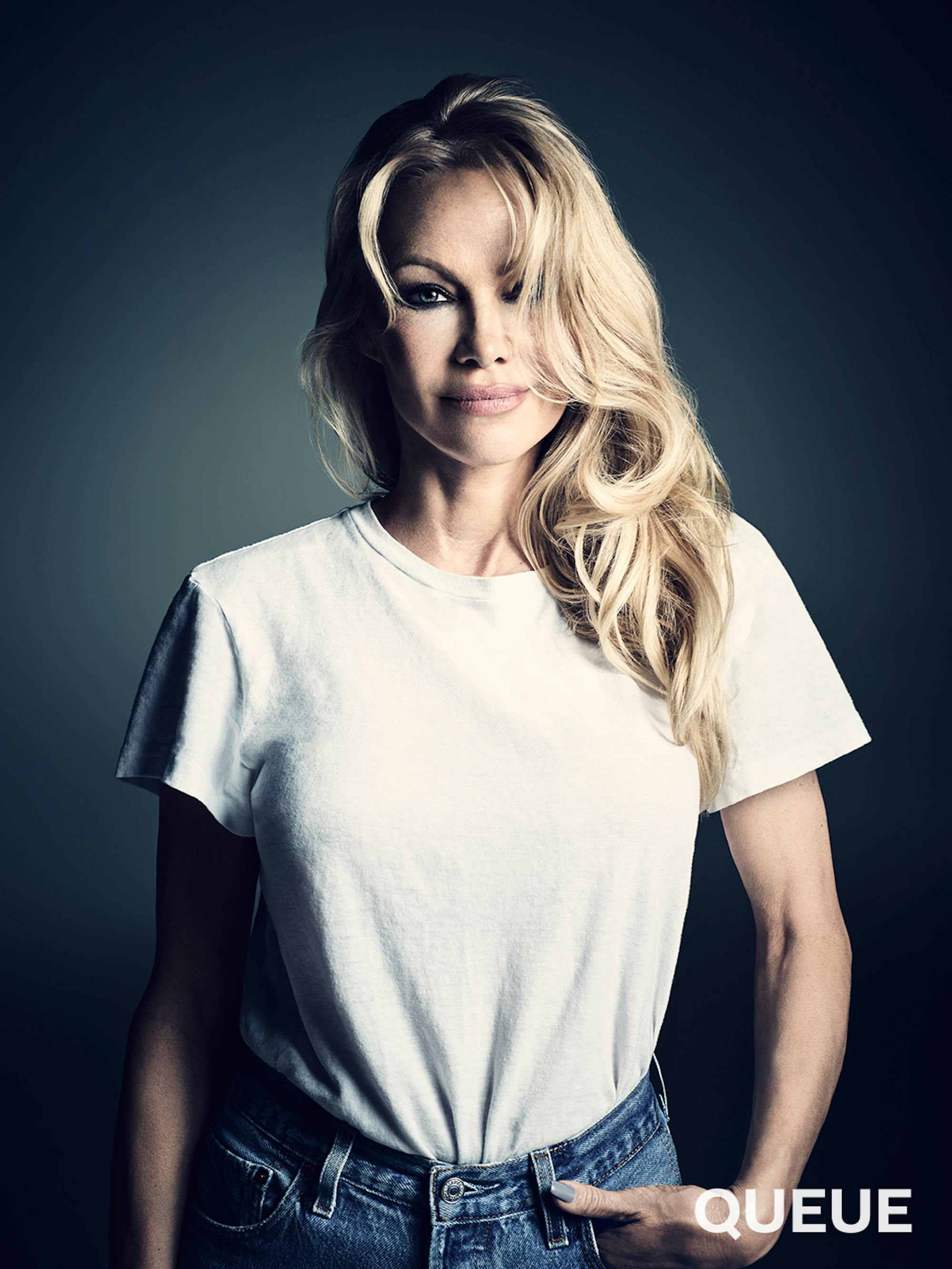
Pamela Anderson
After seeing Anderson’s story told through her own lens, you also realize that maybe, just maybe, she’ll have the last laugh. She is back on beautiful Vancouver Island, living a stone’s throw from her childhood home, neither bitter nor angry about all that transpired in her life, and proud of everything she’s accomplished. “I’ve moved my parents onto the property here, so there are certain things on my checklist that I knew when I was younger I would do,” she says. “These were my goals, so I’m always amazed.” It turns out the film is less of a fresh look than it is a first look. Though the media overload of the 90s might have made us think that we understood Anderson, Pamela, a love story proves we didn’t know a thing.
Across from me in this Zoom square is a “sex symbol,” maybe, but also a woman as complex as any human, someone who can, in one breath, both casually quote Cummings and fondly remember twinkling outfits she once wore to the Video Music Awards. A woman who somehow forged friendships with both Playboy honcho Hugh Hefner and leftist intellectual Noam Chomsky.
The film closes by following Anderson’s recent well-received starring turn as Roxie Hart in a Broadway production of Chicago, a role that allowed her to feel fulfilled as an actress and an artist. “Finally I could put my heart and soul into something that was great — and to see my kids front row. I felt really rooted for. I’ve [always] felt this underdog thing. And I felt very emotional during the standing ovations because I just felt kind of seen for the first time,” she says of her stage debut. “I’m not just running around in a bathing suit, or doing a red carpet, or married to so-and-so. This is just me. Pure faith. A hundred percent going for it. Singing in the shower, as if no one’s watching.”
And, with the documentary newly out, a memoir ahead of her, and a big Broadway debut under her belt, she isn’t focused on what happened way back in the 90s — she’s got her gaze fixed firmly on the future. “When I finished Chicago, there was a relief that I got through it all,” she says. “Then it’s like, Okay, what’s next?”
